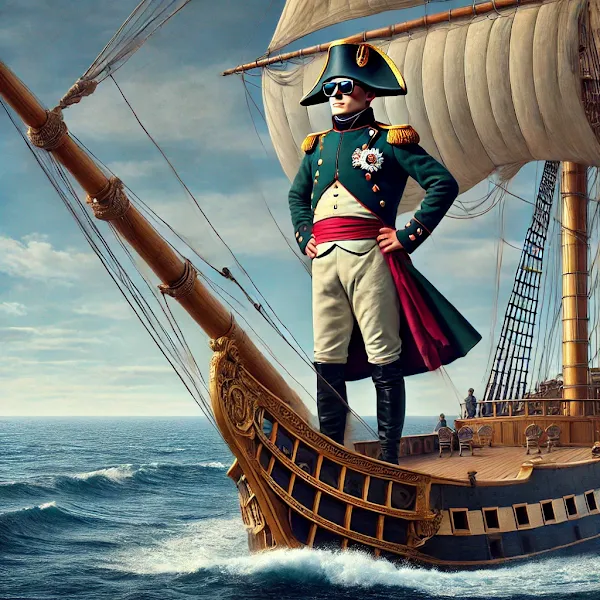Let's start from this quote:
History is a set of lies agreed upon.
It is agreed upon that it is taken from Napoleon Bonaparte's memoir — strongly tied to his period of exile on St. Helena (1815).
He Spoke English? 🤨
No, of course not. It is the English version.
He's French. Actually, a Corsican — the island of Corsica was already under French control before he was born.
His family, the Buonapartes, had Italian origins, specifically from Tuscan nobility. They had migrated to Corsica in the 16th century.
Despite his Italian heritage, Napoleon's life and career were deeply intertwined with France. He received his education in French military schools and rose to prominence within the French military and political system.
In a way, Napoleon's success was a combination of his inherent abilities, his cultural background, and the historical circumstances in which he lived. His "outsider" mentality, driven by his origins, likely added a powerful dimension to his ambition and drive.
Thus, he is well known for his...
out-of-the-box attitude
...unorthodox and relentless.
Is That True He Said That?
🤔 This one is actually awkward. Pinpointing the precise, original French wording of that exact quote is difficult. 🤷♂️
But! Napoleon might say (with thick Corsican accent)...
Bon sang, tous ceux qui sont aux postes élevés en France sont des pommes de terre bouillies.
English: Dear heavens, everyone on top position in France is a piece of boiled potato.
And then Emmanuel de Las Cases got inspired 💡 by Napoleon's muttering while in exile.
Oui!Said Las Cases
Then born that quote...
By someone else.
🤣
😐🤨 It Was a True or False Question. True or False?
True, it was a true or false question. Je suis un tacticien 😎


Comments
Post a Comment